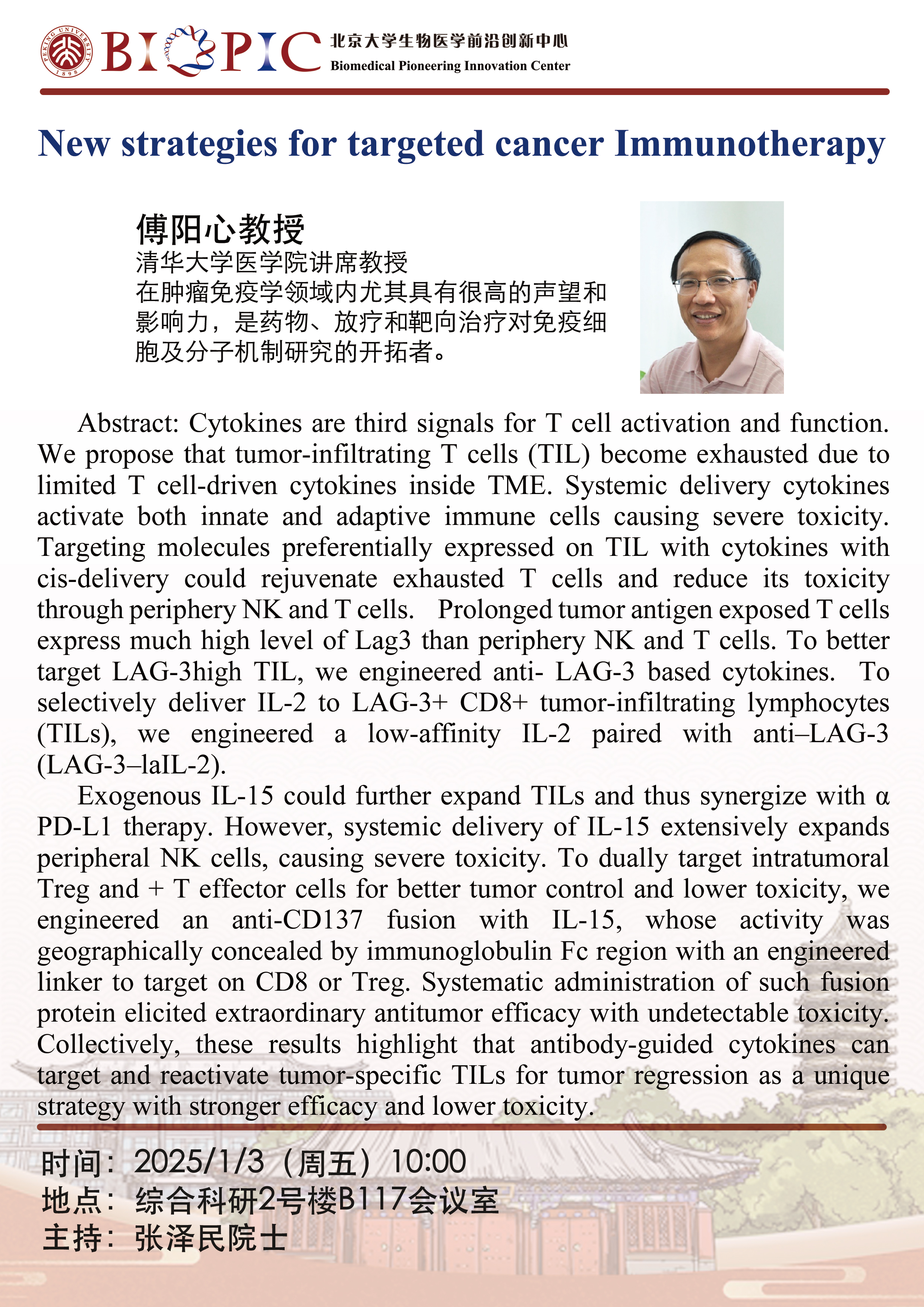
Speaker: Prof. Fu Yangxin, Tsinghua University School of Medicine
Time: 10:00 a.m., Jan 3, 2025, GMT+8
Venue: Rm B117, Research Complex #2, PKU
Abstract:
Cytokines are third signals for T cell activation and function. We propose that tumor-infiltrating T cells (TIL) become exhausted due to limited T cell-driven cytokines inside TME. Systemic delivery cytokines activate both innate and adaptive immune cells causing severe toxicity. Targeting molecules preferentially expressed on TIL with cytokines with cis-delivery could rejuvenate exhausted T cells and reduce its toxicity through periphery NK and T cells. Prolonged tumor antigen exposed T cells express much high level of Lag3 than periphery NK and T cells. To better target LAG-3high TIL, we engineered anti- LAG-3 based cytokines. To selectively deliver IL-2 to LAG-3+ CD8+ tumor-infiltrating lymphocytes (TILs), we engineered a low-affinity IL-2 paired with anti-LAG-3 (LAG-3-laIL-2).
Exogenous IL-15 could further expand TILs and thus synergize with a PD-LI therapy. However, systemic delivery of IL-15 extensively expands peripheral NK cells, causing severe toxicity. To dually target intratumoral Treg and + T effector cells for better tumor control and lower toxicity, we engineered an anti-CD137 fusion with IL-15, whose activity was geographically concealed by immunoglobulin Fe region with an engineered linker to target on CD8 or Treg. Systematic administration of such fusion protein elicited extraordinary antitumor efficacy with undetectable toxicity. Collectively, these results highlight that antibody-guided cytokines can target and reactivate tumor-specific TILs for tumor regression as a unique strategy with stronger efficacy and lower toxicity.
Source: Biomedical Pioneering Innovation Center, PKU
